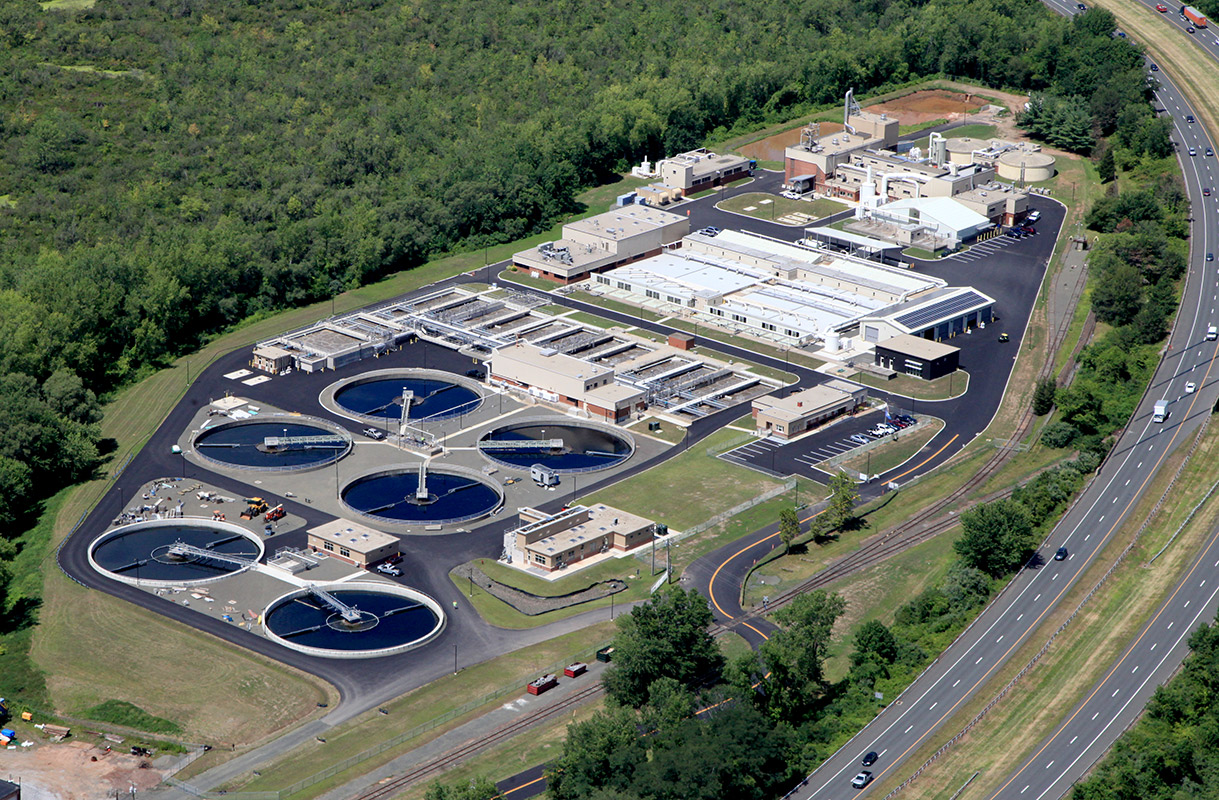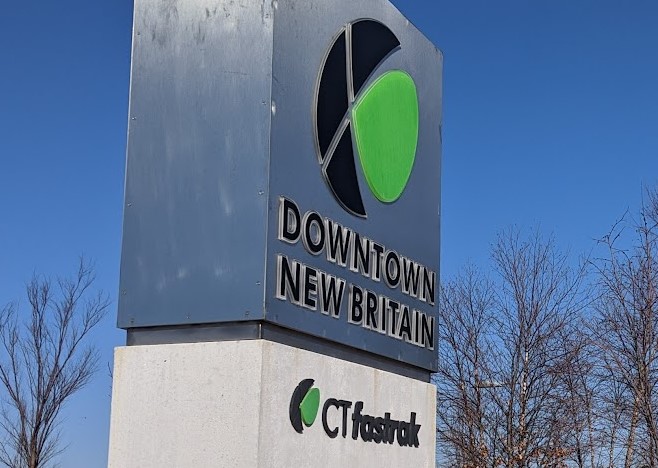Census Data Shows Sewer Fees Take A Bigger Chunk Out of NB Residents’ Wallets
Staff Reports| News Analysis
NEW BRITAIN – The City Council received an annual budget report at its May 24th meeting from the Mattabassett District which shows how much the residents of each member city and town pay to the regional sewer authority.
Mattabassett Executive Director Arthur Simonian and Board Chair John Dunham of Berlin addressed the Council and reported that operating costs and debt service increased 4.10% and the capital budget rose an 61.87% over last year’s budget due to major projects. They explained that “five year average flows impact the operating budget and also the community with the largest flows (New Britain) the most significantly.”
New Britain is one of two cities and two member towns in the regional authority that runs the sewer treatment plant located in Cromwell. Other members include Berlin, Cromwell and Middletown.
The District set a $19,640,572 budget for the fiscal year that started on July 1st and ends on June 30, 2024. Middletown, the last town to join the district, pays admission fees that benefit the Charter members, New Britain, Berlin and Cromwell. This year credits from Middletown benefited New Britain $504,638, bringing the total since Middletown joined the authority to $7.3 million dollars.
New Britain Progressive Special Report
According to the authority’s annual report New Britain is paying 30.1% of debt service as part of their assessment “even though their reserve capacity is 40.89% due to admission fee credits from Middletown.”
In addition,the District used $500,000 of lower expenses from FY2023 and $1,000,000 from reserves to offset budget assessments and significant capital increases for this fiscal year. The Mattabassett budgeting may explain why New Britain held the line this year on the city sewer rate at $4.75 per 100 cubic feet.
While the sewer rate held this year because of the Mattabassett’s budgeting Ray Esponda, the city’s Deputy Director of the Department of Public Works (DPW) told the Common Council last month that sewer fees tend “to go up a lot faster than ours (water rates) do.”
Every quarter sewer charges account for a large chunk of water utility bills for city residents. An analysis of census data and sewer fees paid by Mattabassett District communities shows that paying for treatment of waste water represents one of the most regressive forms of taxation, perhaps more regressive than property taxes that hit New Britain taxpayers hard this month. A fixed income older couple in New Britain with household income of $40,000, for example, pays the same amount as a $250,000 a year executive in Cromwell. “Sewer rates are considered regressive because they take a larger percentage of income from lower-income households than from higher-income households,” according to one analysis. “This is because sewer rates are typically based on water usage, which is not necessarily proportional to income. Lower-income households tend to use a larger percentage of their income on basic necessities like water and sewer services than higher-income households do.” New Britain Progressive’s analysis confirms the regressive nature of sewer and water bills making low and moderate income households pay more for a basic necessity.
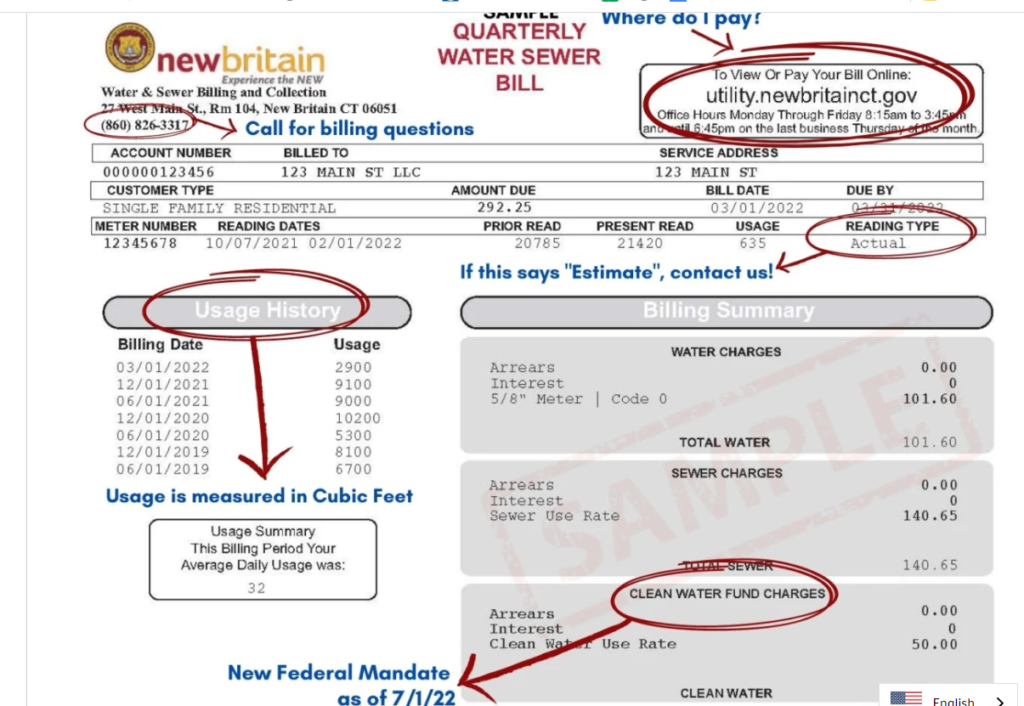
Among the Mattabassett District member cities and towns, data shows New Britain rate payers pay a larger percentage of their household incomes to the Mattabassett District than ratepayers elsewhere. New Britain as a whole pays 33% more as a function of total income than the other the District member towns.
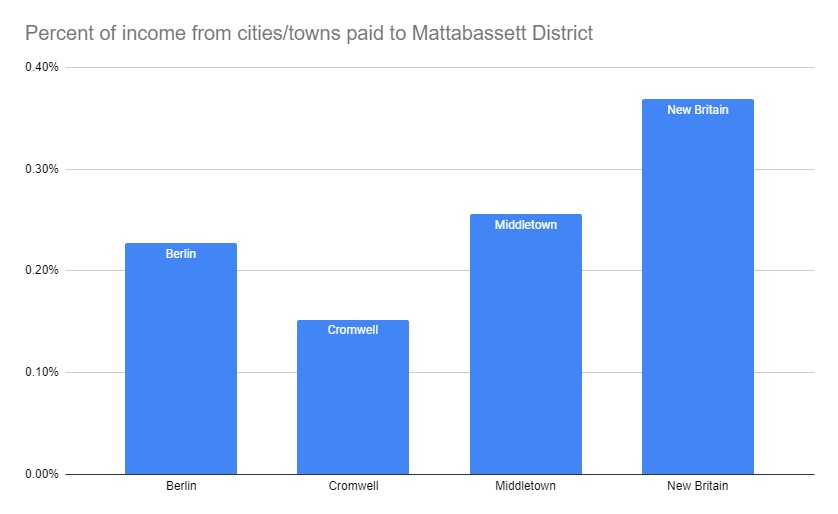
Based on data from the U.S. Census Bureau and the Mattabassett District’s budget, it appears that the payments made for the cost of running the sewer authority are 0.37% of New Britain’s total personal incomes. That compares to 0.26% for Middletown, 0.23% for Berlin and 0.15% for Cromwell. The amount by income that New Britain users pay appears to be nearly two and a half times the amount by income for Cromwell, for example.
These statistics, however, refer to the total amount paid as a function of residents’ incomes, so it does not account for the amount of sewer fees paid by businesses and other organizations. But the data does show that New Britain, as a whole, pays more of the burden by personal income for the operation of the Mattabassett district than the residents of other member communities.
The District’s budget shows that $15,397,317 comes from the member towns. That is offset by another $4,243,255 of its budget that comes from other sources.
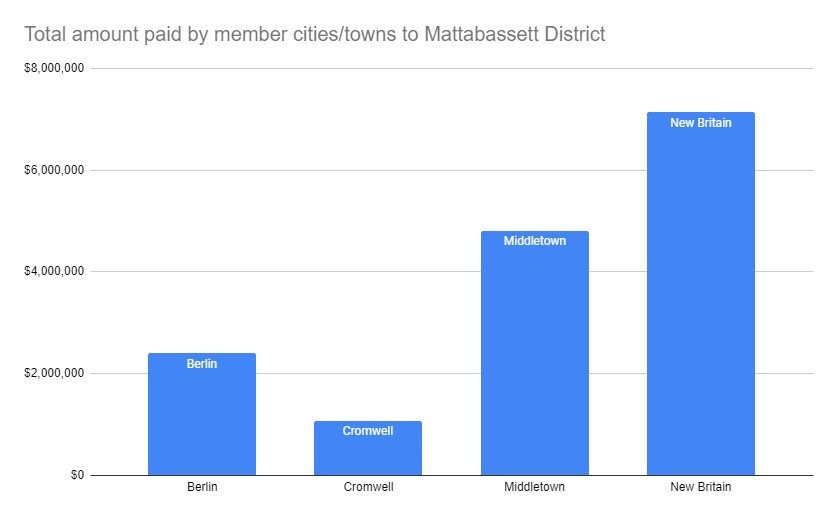
Of the $15,397,317 from member towns, New Britain pay the largest amount in the upcoming budget year, at $7,133,922. That amount is 46.33% of the total from member towns, similar to the 47.59% proportion of New Britain’s population as a percent of the total population of the member towns.
Berlin pays $2,395,586, 15.56% of the total amount paid by member towns, and Middletown pays $4,803,293 or 31.20% of the total from member towns. Berlin’s and Middletown’s share of the District’s population are 12.93% and 30.32%, respectively.
Cromwell accounts for $1,064,516 to support the Mattabassett District’s budget, 6.91% of the total from member towns. But Cromwell’s share of the District’s population is 9.16%, significantly higher than its share of the budget contribution, but less than its 4.61% share of the sewer district’s 2022 “flow”.
New Britain’s share of the 2022 sewer district’s “flow”, according information submitted by the District to the Council, was 43.72%. Berlin’s “flow” share was 22.31% and Middletown’s was 26.99%
The Mattabassett District’s budget summary to the Council says that, “The FY2024 Budget increased 11.23%, which was driven primarily by high capital costs projects, inflation on chemicals, fuels along with pension increase.”
Five New Britain residents serve on the District’s 15 member Board of Directors: Tonilynn Collins, Mary Marrocco, Richard Healey, Don Naples and Daniel Salerno.

